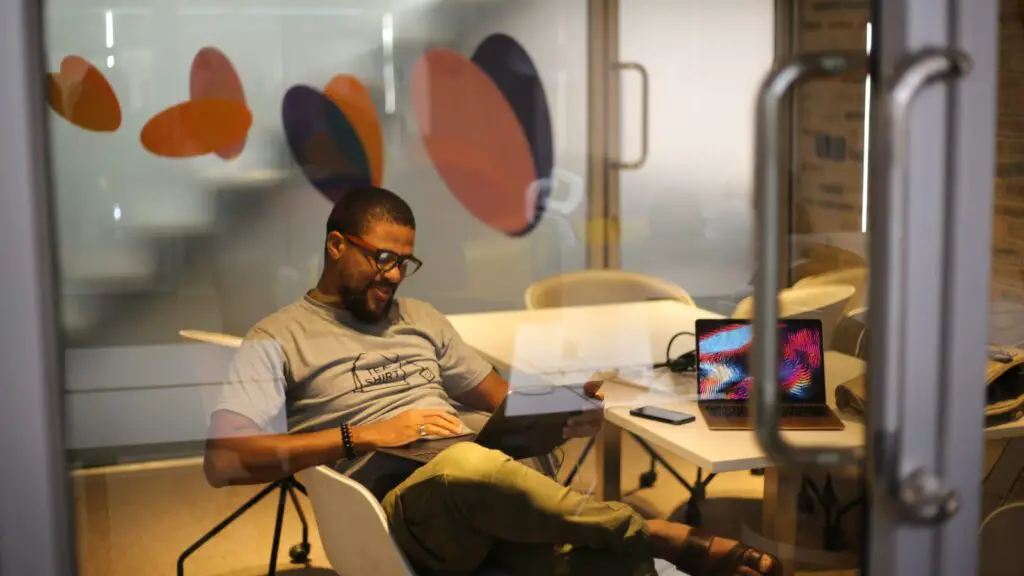In the midst of accusations of fraud and security breaches, Flutterwave is intensifying its efforts to expand its global business operations in the United States and Europe.
In the midst of several scandals, the fintech startup Flutterwave is securing agreements with foreign companies.
Within a month, it announced key alliances with Microsoft, Token.io, and Audiomack. Experts and investors feel that Flutterwave is nearly too big to fail due of its scale and significance in the African digital industry.
Africa’s fintech darling is now generating headlines for its smart business decisions, after a year of being in the news primarily for scandals.
Flutterwave revealed three potential business expansion
Flutterwave revealed three potential business expansion collaborations in June. The company announced on June 6 that it was working with Token.io, a provider of payment infrastructure, to enable its merchants to reach clients in Europe and the United Kingdom. June 21: Flutterwave announced that it would offer payment services to Audiomack, a well-known music streaming platform in the United States. And the business announced the very following day that it had signed a five-year contract with Microsoft to enable Azure transactions throughout the African continent. The partnership between Flutterwave and Microsoft, which will enable payments to and from Africa, “is an incredible opportunity to impact growth across the continent,” the company stated.
Flutterwave CEO Olugbenga Agboola stated in an email to Rest of World that the company is now in discussions for further deals of this nature. He remarked, “We have a partnership that will improve international aviation payments for Africans, and we are building something for education payments.”
These two pronouncements come after a year of Flutterwave-shaking scandals. Allegations of mismanagement, administrative errors, sexual harassment, and security breaches have been made against the corporation since April 2022. Experts, however, feel that Flutterwave—which is practically too big to fail—is likely to overcome the negative publicity and legal challenges because to its size and significance in the African digital industry.
“Flutterwave has established a significant market position that is difficult to rival,” Emeka Ajene, a successful serial entrepreneur and the creator of the early-stage investment firm Afri.capital, stated to Rest of World. Undoubtedly, the organization and its executives have committed some mistakes. Still, the business generates a lot of value for the fintech and payments ecosystem as a whole as well as its current partners, such as Uber and Netflix.
Former Flutterwave investor Zachariah George is a managing partner at the venture capital firm Launch Africa. He told Rest of World that he thinks the fintech company’s standing and stature in the market helped them land these deals. George stated, “Microsoft needs more retailers in Africa to use Azure.” Microsoft thus collaborates with Flutterwave to reach these individuals. In the end, it comes down to volume, and Flutterwave has achieved such a large reach over numerous nations.
Undoubtedly, Flutterwave is still reeling from the controversy. A judge in the Kenyan High Court temporarily banned 45 bank accounts and 10 MPesa mobile money wallets owned by Flutterwave in June, concurrently with the company’s announcement of new collaborations. This came about as a result of a petition that over 2,000 investors filed, alleging that Flutterwave had conspired with 86 Football Technology, a sports betting company, to defraud them of $12.04 million. The claims have been refuted by Flutterwave.
Rest of World was informed by CEO Agboola that the company’s accounts had been frozen as a formality in a legal lawsuit. He declared, “A baseless and misrepresenting account of the event has been reported by the media.” Just a year has passed since numerous bank accounts connected to Flutterwave and its affiliated companies, totaling around $200 million, were blocked in Kenya due to suspicions of money laundering. Since then, the court matter has been dropped, and the account lien has been removed.
According to reports, several Flutterwave platform accounts were compromised in February, resulting in losses from consumer payments exceeding $3.6 million. The business refuted this claims, claiming that a review was initiated because its system noticed a “unusual trend of transactions on some users.” However, it later acknowledged in some court filings the security lapse.
African startup public relations professional Victoria Crandall told Rest of World, “For a company that has been vocal about their ambition to go public, they will be shortsighted if they don’t start taking their reputation more seriously and course-correct some of their internal operations.” “Flutterwave needs to start considering American public opinion if they plan to go public. What will institutional and retail investors think of their governance and culture?”
Rest of World was informed by Ajene that Flutterwave should always be ready to deal with intense public scrutiny because of its position. According to him, “Flutterwave was and probably still is Africa’s most valuable startup, and many stakeholders on and off the continent view the company as a proxy for Africa’s tech opportunity at large.” “Therefore, the company receives a lot of attention, both positive and negative.”
Visa and Mastercard are flooding Africa with cash.
The two American behemoths are gradually expanding their footprint on the continent, offering everything from a startup incubator to financing businesses and even investing in telecom firms.
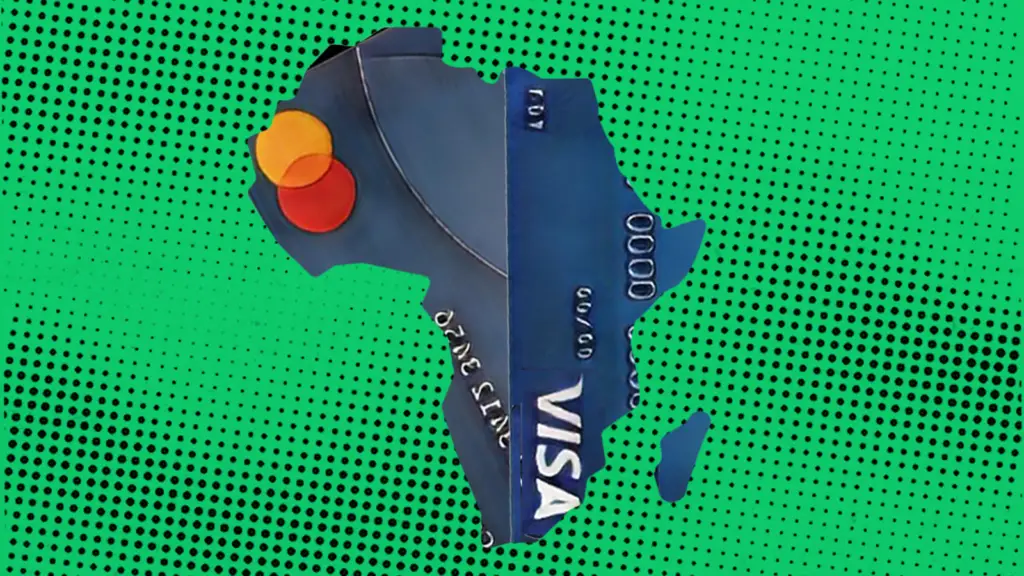
Six months after the Mastercard Foundation announced a fund to invest in early-stage entrepreneurs through local firms, Visa launched its Africa Fintech Accelerator program in 2023.
The largest telecom company in Africa, MTN, agreed to sell Mastercard a 3.8% share in its mobile money division for $200 million last month. The business owns a comparable portion of Airtel Africa’s mobile money business.
In an era where consumers are gravitating toward digital wallets and fast codes, local business owners and analysts predict that these actions will help Visa and Mastercard remain competitive in Africa.
The U.S. fintech giant Visa launched applications for the second cohort of its Africa Fintech Accelerator program on January 29, around two weeks after it ended the first one. Teams from 23 fintech startups in Africa participated in the first batch, where they spent three months learning about the newest technology in the industry and connecting with seasoned investors and mentors.
Just six months had passed since the Mastercard Foundation, an international non-governmental organization founded by Mastercard in 2006, opened a fund to finance investments in early-stage businesses through regional investment firms, when Visa’s accelerator program was revealed. Investment firms in South Africa, Kenya, Uganda, and Nigeria have already started to get money from the foundation.
These two instances only illustrate the efforts of U.S.-based global payment technology behemoths Visa and Mastercard to increase their presence in Africa. In addition to working with startups, both organizations have established alliances with major African telecommunications that run substantial fintech companies and have invested directly in regional unicorns during the previous five years.
At a time when digital wallets and fast codes are becoming more and more popular, African fintech experts and entrepreneurs think that these measures would help Visa and Mastercard stay relevant on the continent while also helping them grow their current businesses.
Ismail Belkhayat, the founder and CEO of Chari, a company that was included in the first batch of Visa’s Africa accelerator program, told Rest of World that Visa and Mastercard “make money when there is a transaction made with the card, so their ambition is to get more and more people in Africa to use their own cards, and for that, they need fintechs.” Thus, they are assisting more start-ups in becoming issuers that provide cards to final consumers. And they primarily use accelerators to accomplish this.
Belkhayat thinks the two titans are competing to acquire the top fintech firms in order to control Africa’s expanding digital payment business. He claimed that “[They] give the fintechs what we call ‘incentive plans’ to start using [their] infrastructure, which includes the payment gateways, the cards, and the APIs.”
A Visa representative stated in an email to Rest of World that the company’s actions on the continent are a reflection of its overarching mission, which places a high value on Africa.
“To scale operations, deploy innovations, and deepen collaboration, we have been steadily increasing our investments in Africa. Just over a year ago, we committed to investing $1 billion in Africa over the next five years,” the spokesman stated.
Requests for comments from Rest of World were not answered by Mastercard or the Mastercard Foundation.
According to statements made in public by the two businesses, Visa and Mastercard have invested approximately $700 million, both directly and indirectly, in Africa’s payment sector. Their largest collaborations have been with the continent’s largest telecom providers.
Only last month, Mastercard and MTN, the biggest telecom company in Africa, reached an agreement to pay $200 million for a 3.8% share in MTN’s mobile money division. For $100 million in 2021, the company acquired a comparable interest in Airtel Africa’s mobile money operations, another prominent telecommunications company.
Visa said in 2022 that it has begun integrating its global virtual card network with M-pesa, the mobile money platform owned by Safaricom, a Kenyan corporation with a 99% market share.
Tochukwu Ironsi, an analyst with tech newspaper Decode Fintech, told Rest of World that “Visa and Mastercard were able to convince and enable banks to make big investments in payment technology, and some of those early investments sparked and continue to support huge parts of fintech innovation today.”
According to Olanrewaju Odunowo, CEO of analytics and insight business TechCabal Insight, the Mastercard Foundation has given various grants and non-equity investments to African entrepreneurs, as reported by Rest of World. He stated, “The Mastercard Foundation’s fund is important because it is an impact investment coming at a time when funding is drying up.”
The effort introduced Belkhayat and Femi Iromini, the creator of the Nigerian fintech Moni, who was also a part of Visa’s accelerator program, to the breadth of Africa’s payment ecosystem, creative funding opportunities, and cutting-edge technology, including Visa’s product suite, as they informed Rest of World.
“All the key stakeholders of the Moroccan fintech ecosystem, including the regulator, the national switch, the acquirers, the banks, financial institutions, and Moroccan fintech companies,” as stated in a LinkedIn post by Belkhayat, attended the closing ceremony for the first batch.
“The training to better understand the payment ecosystem, which is very deep and complex, is my biggest benefit from the Visa acceleration program,” Belkhayat stated. “They demonstrated to us all of the services they provide. They also showed us around nations where payments are changing, primarily Kenya. Thanks to them, we’ve seen the payment of the future. Additionally, they introduced us to startups in different regions.
According to Iromini, one of the program’s greatest advantages is the access to financial options it offers. “Bigger companies with more negotiating power, like Visa and Mastercard, should establish these kinds of initiatives to work with and assist startups,” he stated. “The program gives startups the chance to use [their] scale for distribution and experience, and Visa the chance to learn new ideas from startups.”
Businesses in Nigeria are increasingly using Moniepoint over traditional banks.
In Nigeria, Moniepoint’s payment terminals are now widely available. OPay, a Chinese-backed corporation, is a rival to the business, though.
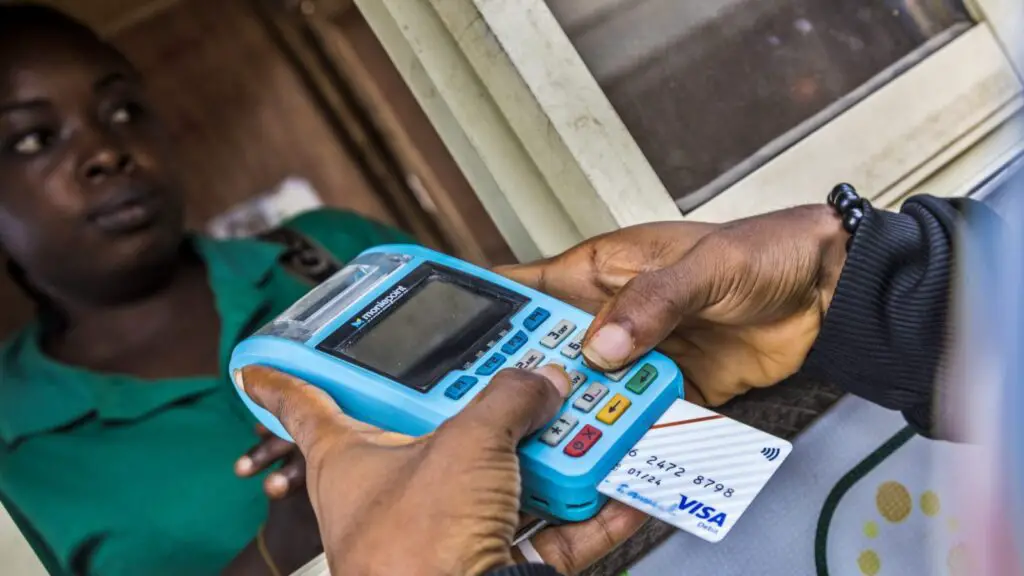
In Lagos, Chidi Ebule allows his clients to use their preferred bank or fintech business credit card at his grocery shop checkout line by keeping at least ten payment terminals there. However, as of late, he has only required to use one machine—that of the prominent local fintech company Moniepoint—for the majority of his transactions.
“When I try to use a different POS (point of sale) system, people tell me not to put my card in there. Ebule instructed Rest of World to “use Moniepoint.” “The customer is aware that using the other [terminals] could cause problems, but he has no control over the bank.”
The light-blue Moniepoint payment terminals are already commonplace in Nigeria, appearing in everything from roadside businesses in Kano to megastores in Lagos. Because Moniepoint delivers a lower-than-average transaction decline rate and promptly reverses transactions in the event of unsuccessful payments, customers prefer it over competing products. According to its website, the Lagos-based company was established in 2015 and has since spread throughout the entirety of Nigeria, offering its services to all 774 local governments in the nation.
“Fantastical assertions about financial inclusion don’t matter to merchants. According to Nchedolisa Akuma, senior fintech analyst at market research firm Stears, all they want is to know if their transactions have completed and receive a fast payment alert, she told Rest of World. “Moniepoint’s nimbleness can be attributed to their intentional approach towards gathering real-time market intelligence and market intelligence.”
Moniepoint is said to have recorded 5.2 billion transactions in 2023, totaling more over $150 billion. It came in second on the Financial Times’ list of Africa’s fastest-growing businesses that same year. A spokesman of the corporation told Rest of World that as of January 2024, Moniepoint’s payment terminals were being used by about 2.3 million enterprises. Transaction fees from its online payment gateway and point-of-sale devices account for the majority of Moniepoint’s revenue. It provides business loans and is licensed as a microfinance bank.
Originally called TeamApt, Moniepoint developed software for conventional banks at the time of its founding. It was granted a government license in 2019 to engage in agency banking, which permits businesses to serve as middlemen between banks and their clients.
We simply thought that banks weren’t carrying out these actions correctly, so could we enter this market and carry out these tasks correctly? The managing director of Moniepoint’s banking division, Tunde Olofin, told Rest of World.
Moniepoint has raised more than $57 million from investors to date, including Global Ventures, Quantum Capital Partners, and QED Investors. According to Olofin, the company’s network of more than 600,000 local “business managers” contributes to its growth. These managers receive fees for introducing new business owners to the platform and selling POS devices.
Moniepoint saved numerous small companies in early 2023 when the government of Nigeria altered the design of the currency, causing an emergency cash crisis.
During that period, Oberry Agamah, the owner of a phone accessories store in Lagos, informed Rest of World, she began utilizing Moniepoint’s payment terminals. She claimed that because of the strain on the nation’s banking system, the ones offered by other banks were unable to execute transactions efficiently.
Agamah’s business suffered prior to her utilizing the Moniepoint machines. She had trouble handling customer transactions and had to deal with consumers who made botched digital transfers, bought items, and then vanished.
“Receiving transfers in our regular accounts used to be terrible—they wouldn’t go through on time, and customers would disappear with our money,” Agamah claimed. “My business has benefited greatly from the Moniepoint experience, as it has made receiving transfers easier and faster for me.”
Solomon Amadi, vice president of payment infrastructure at Moniepoint, told Rest of World that the company’s systems are built to grow in response to transaction volume. “A lot of other industry participants lack significant control over their core banking, but we do. and we’ve sufficiently improved that procedure so the client comes first,” he remarked.
In June 2023, OPay, a fintech company owned by China and supported by Sequoia Capital China and SoftBank Vision Fund, emerged as Moniepoint’s closest competitor in Nigeria. As to the Nigerian Financial Services Report, OPay held a 37% market share in the Nigerian point-of-sale agents network. With a 20% market share, Moniepoint ranked second.
According to Olaoluwa Oyedele, vice president of growth and product at the fintech firm Earnipay, located in Lagos, Moniepoint is more advantageous than its competitors due to the range of financial services it provides, as reported by Rest of World.
Moniepoint can do a variety of tasks thanks to a few different licensing categories, according to Oyedele. “They are authorized to provide POS terminals by virtue of their payment terminal service provider license and microfinance bank license, which both allow them to accept deposits. They can target offline payment firms or industries by utilizing these two licensing categories in tandem. It is the location of their extremely impressive distribution network. For background, the largest payment option in Nigeria is through offline means.
Edidiong Uwemakpan, vice president of communications at Moniepoint, told Rest of World that the company’s business managers—well-known members of the community who act as intermediaries between the company and its users—are essential to its expansion.
The National Union of Road Transport Workers, churches, and individuals with branches all throughout the nation were among the informal networks that Uwemakpan and his team examined while creating this network. How are these individuals able to balance their books and collect money from everybody? Because, in the end, what we were creating throughout the nation were human branches.
Instead of receiving a salary, business managers are paid a sign-up fee of up to 8,500 naira ($5.44) and receive monthly commissions on all transactions performed through each POS terminal they oversee.
A Moniepoint business manager named Fabusoye Tolu told Rest of World, “If you work hard and make enough people sign up for POS, you are in business, you are in money.” “As opposed to receiving a salary, which is capped at a specific amount, you receive commissions, which are much better. Your earnings are limitless when it comes to commissions.
Tolu claimed that in order to increase his earnings at the end of the month, he frequently targets large companies with strong cash flow, however he declined to reveal the exact amount he makes from commissions.
Journalist and author Ope Adetayo lives in Lagos, Nigeria.
Discover the African artists who speak Portuguese and are achieving success in Brazil.
African influencers are relocating to the biggest nation in Latin America, where the creative economy is flourishing.

Baptista Miranda was fascinated by Brazil as a child, having learned about it from opulent soap operas that brought the vibrant metropolises of the distant nation to life on screen. He was from Lobito, an Angolan metropolis of roughly 500,000 people, and had always dreamed of going to Brazil.
Miranda launched a YouTube channel in 2017 with the goal of illustrating how Angola saw Brazil; both nations were formerly under Portuguese colonization and still speak the same official language. His early videos, which he mostly shot on his friends’ phones because he didn’t have one, gradually became well-known.
His desire was realized five years later when Miranda’s channel amassed over 600,000 subscribers. He received an invitation to travel to Brazil, fully funded, from Flow Studios, a well-known Brazilian YouTube creative group. Miranda was overjoyed. “We consider Brazil to be the nation of action. He told Rest of World, “I’ve always said it’s Hollywood for Angolan people.”
Brazilian podcasters and YouTubers extended Miranda a warm welcome, with a few even suggesting joint ventures. To the surprise of his Angolan relatives, he signed his first advertising contract four months later for a Guaraná Antarctica campaign, a well-known soft drink from Brazil.
Since then, Miranda has accumulated 6 million followers on Instagram, TikTok, and YouTube, making her the most followed Angolan on social media. Most of his fans come from Brazil. His sole source of revenue is the web material he creates, especially the millions of views he monetizes on YouTube and the local brand partnerships he forges on Instagram.
Similar to Miranda, a number of other Africans who speak Portuguese are vying for a slice of the huge Brazilian digital creation market and the associated opportunities. Over a dozen African content makers are based in Brazil, the world’s largest Portuguese-speaking nation with the fifth-largest social media market with over 165 million users, according to Rest of World. A São Paulo-based company called YouPix estimates that 20 million people in Brazil earn money in the creative economy, a far cry from the various African nations from where the recently transplanted innovators originate.
West African model Nabillah Sedar told Rest of World, “The creator economy in Guinea-Bissau practically does not exist, and if it does, it’s right at the beginning.” As a student, he relocated to Brazil in 2015, and in 2022 he began creating stuff for the internet. Portuguese-speaking nations, such as Guinea-Bissau, Angola, and Cape Verde, are closely associated with Brazil, where the slave trade left half of the population descended from Africans.
The high cost of connectivity is one factor contributing to Africa’s sluggish progress in the creative economy. “When the cost of data is too high, it’s very difficult for creators to reach a large audience,” Lagos-based digital creator manager Nelson Fagbemi said to Rest of World. “This is where Brazil’s sizable [Portuguese-speaking] market comes into play.” In Brazil, 1GB of data typically costs 40 cents, but in Angola and Guinea-Bissau, it costs $1.01 and $2.72, respectively.
“We consider Brazil to be the nation of action. It’s Hollywood for Angolans, as I’ve always maintained.
A mutually beneficial relationship is being fostered on both sides of the Atlantic by the influx of African artists into Brazil. Miranda stated, “I want to replicate many things about the creator economy that I learned in Brazil in Angola.” He is aware that patience will be required because many Angolan businesses still do not compensate creators for collaborations.
Particularly on Instagram, Brazil’s sophisticated creator economy presents enticing revenue potential for recent newcomers. With over 119 million Instagram users, the nation leads the world in the number of influencers on the platform (10.5 million of whom have more than 1,000 followers), according to Nielsen data.
Instagram content creators in Brazil have access to a wide range of tools and services from Meta, some of which are not available in other African countries. These include Live Badges, which let creators to accept money from their followers and communities during a live broadcast; Gifts, a feature that lets fans send money to creators’ Instagram accounts; and Stars, which are given out by fans to creators and can be exchanged for cash.
More over 80% of the 570 respondents in a 2023 study of Brazilian creators claimed to have earned money from their internet activity. According to the survey, which was carried out by Brunch, a Brazilian consulting firm, and YouPix, half of the participants made between $400 and $2,010 per month via brand collaborations.
Rafaella Lotto, president of YouPix, told Rest of World that “[African creators in Brazil] are becoming more prominent in the scene and attracting attention from local brands since 2022.”
Miranda stated that he sends money each month to his relatives in Angola. His friends and relatives back home are surprised by his long-term objective, which is to purchase his mother a home. “People in Angola don’t think I can support myself with [what they refer to as] internet money,” he remarked.
Many aspiring African influencers now use Miranda’s success story as a model. In 2014, Esmael Nzuzi dos Santos Gabriel relocated from Angola to Brazil and was shocked to discover that many Brazilians were unaware that Angolans spoke Portuguese. “We’re recognized as nations with fraternal ties,” Nzuzi dos Santos Gabriel said to Rest of World. Launched in 2020, África do Jeito que Nunca Viu (“Africa the way you’ve never seen it”) is his Instagram page, which currently has over 350,000 followers. Nzuzi dos Santos Gabriel stated that although his monthly income varies based on the demand for his content, his Instagram page has grown to be a significant source of revenue.
However, despite Brazil’s abundance of chances for artists and the impressive success of social media stars like Miranda and Nzuzi dos Santos Gabriel, Black artists continue to confront significant obstacles. According to Miranda, just 16% of Brazilian inventors are Black or of mixed race, and few African women have succeeded as artists in their home nation. Yuran Tinta, a wholesome content creator who frequently discusses his Angolan heritage, told Rest of World that he receives racist and xenophobic remarks on his posts on a daily basis.
The number of people who want to learn from me and my stuff, according to Tinta, is what motivates her. He has been developing an online course on content development for African content producers. He declared, “I want more people to understand how they can monetize their online content in both Brazil and Angola.”
How Netflix was overthrown by an African streaming provider
With relationships with Comcast and HBO, an extensive library of local content, and exclusive access to the largest football leagues worldwide, Showmax dominates the industry.
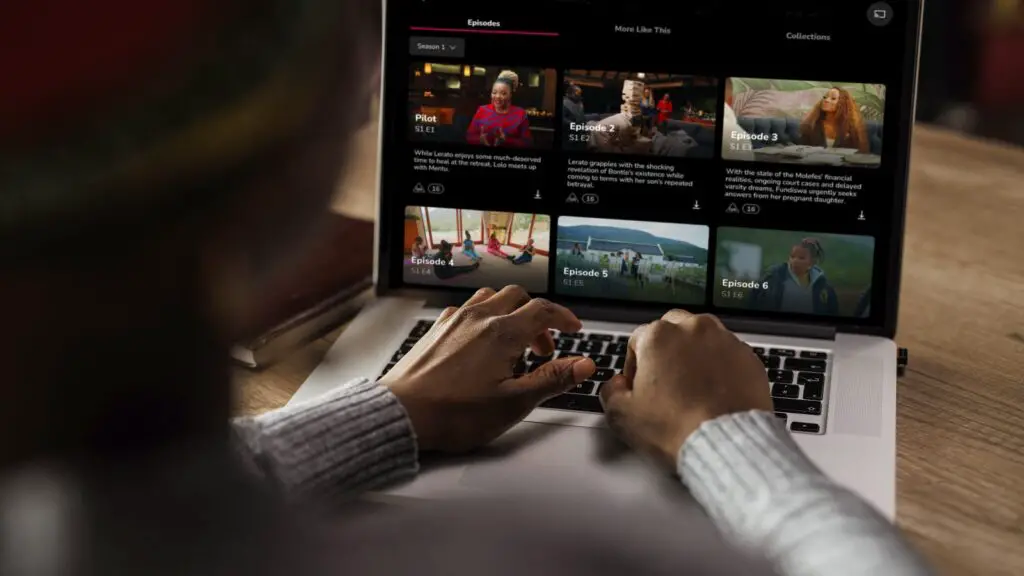
An eight-year-old South African streaming startup has surpassed Netflix to take the top spot in Africa.
According to market research firm Omdia, Showmax has 2.1 million members on the continent by the end of November 2023, compared to 1.8 million for Netflix. Showmax was carved out of MultiChoice, the largest entertainment company in Africa, in 2015. In the same month, Netflix’s market share fell to 33.5% while Showmax’s increased to almost 39%.
In terms of subscribers in November 2023, Amazon Prime Video ranked third on the continent with only 300,000, according to Omdia.
In the fiercely competitive African video streaming market, where international companies, large telcos, and numerous national apps are vying for users’ money, Showmax has surpassed Netflix. Prime Video declared in January that it would be closing its operations in the Middle East and Africa and would no longer be producing original content.
The company’s keen awareness of regional tastes and a carefully chosen selection of content catered to African interests set it apart from rivals.
Showmax has formed close ties with regional producers in African nations and collaborated with HBO and Comcast to offer its audience premium, worldwide English-language programming. The portal offers a specific subscription plan for the English Premier League, which it also owns streaming rights to.
Tech entrepreneur and investor in the film industry Jason Nkoju told Rest of World, “Showmax has over-indexed on local content and they are clearly seeing the long-term impact of that strategy.” The international streaming providers don’t appear to completely get that this is a volume game. Now, I suppose, they will get that. The mainstream audience favors its own programming.
Showmax executives helped director Tobechukwu Ejiofor refine his documentary idea when he presented it to them, he told Rest of World, emphasizing the company’s close relationship with African producers. Additionally, Showmax set up a meeting between Ejiofor and Daro Umaigba in Lagos, introducing Ejiofor to another filmmaker who was investigating the same subject. Ejiofor and Umaigba told Rest of World that the company convinced them to collaborate, and that encounter ultimately resulted in the documentary Freemen, which explores how the Igbos, one of Nigeria’s major ethnic groups, employ a distinctive apprenticeship system to generate wealth throughout generations. This month marked the debut of the show as a Showmax original.
Ejiofor claimed that Showmax’s comprehension of the project’s cultural significance contributed to their smooth collaboration. He claimed that Showmax “always seems to be in touch with loads of filmmakers and what they are doing, and always has a wealth of knowledge of projects that are in the production stage.”
One of Showmax’s greatest benefits to date is that it obtained exclusive licensing rights to HBO’s content in Africa in 2020. Designer Mpumelelo Cindi, based in Johannesburg, told Rest of World, “My favorite shows were Billions and Curb Your Enthusiasm, although we now watch a few local shows on Showmax.”
Comcast, the parent company of NBC, Peacock, Sky, DreamWorks Animation, and Telemundo, acquired a 30% share in Showmax through NBCUniversal in March 2023. This provided the African company with access to cutting-edge technology, capital necessary to thrive in a cutthroat industry, and popular English-language material, ranging from Warner Bros., Sony, Paramount, BBC, Lionsgate, and ITV.
CEO Marc Jury of Showmax told Rest of World that Comcast’s involvement will improve the company’s standing even more. “It enables us to allocate significantly more funds towards local productions, and when you combine those local productions with global content and the finest live sports, we are confident that we have a winner.”
The nations where software development is expanding the quickest, per GitHub
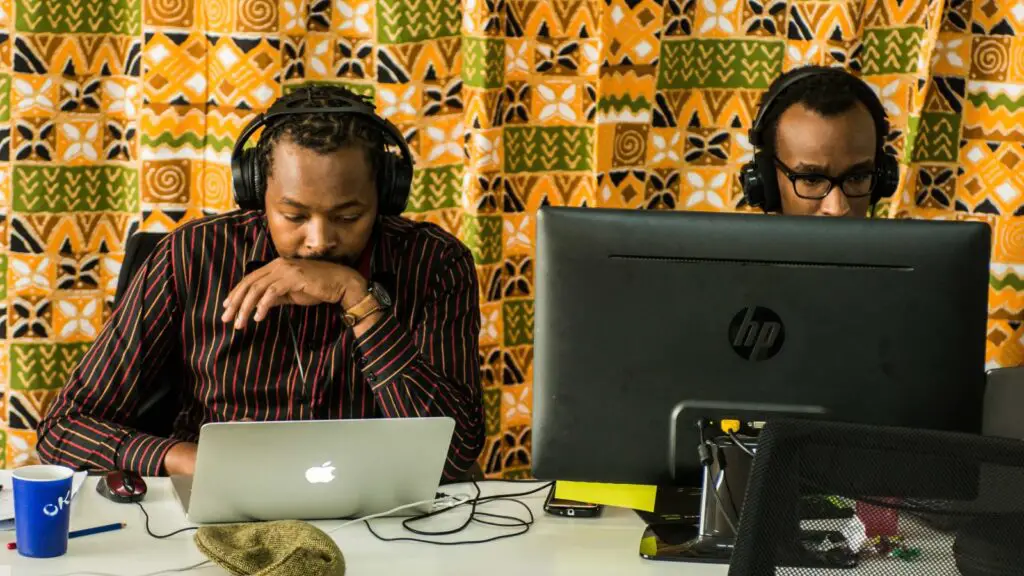
A busy GitHub profile is one of the finest strategies for developers worldwide to be hired as a programmer. The platform, which is divided into closed repos open to project participants exclusively and public repositories (or repos) used for open-source collaboration, is one of the biggest worldwide centers for software development.
Although GitHub has long been used to evaluate specific programmers, its data also reveals the developer contributions of every nation on the planet, providing an intriguing picture of which countries are developing at the fastest rates. As part of a project it calls the Innovation Graph, GitHub shares the data on a quarterly basis; the most recent batch was made available on January 18.
The data reveals an unexpected increase in the number of developers in several countries over the course of the last year. GitHub had 945,696 Bangladeshi engineers in the three months before September 2023. There were just 568,145 developers in the nation with accounts during the same period in 2022, representing a roughly two-thirds increase year over year. It is the world’s largest proportional growth for any nation.

